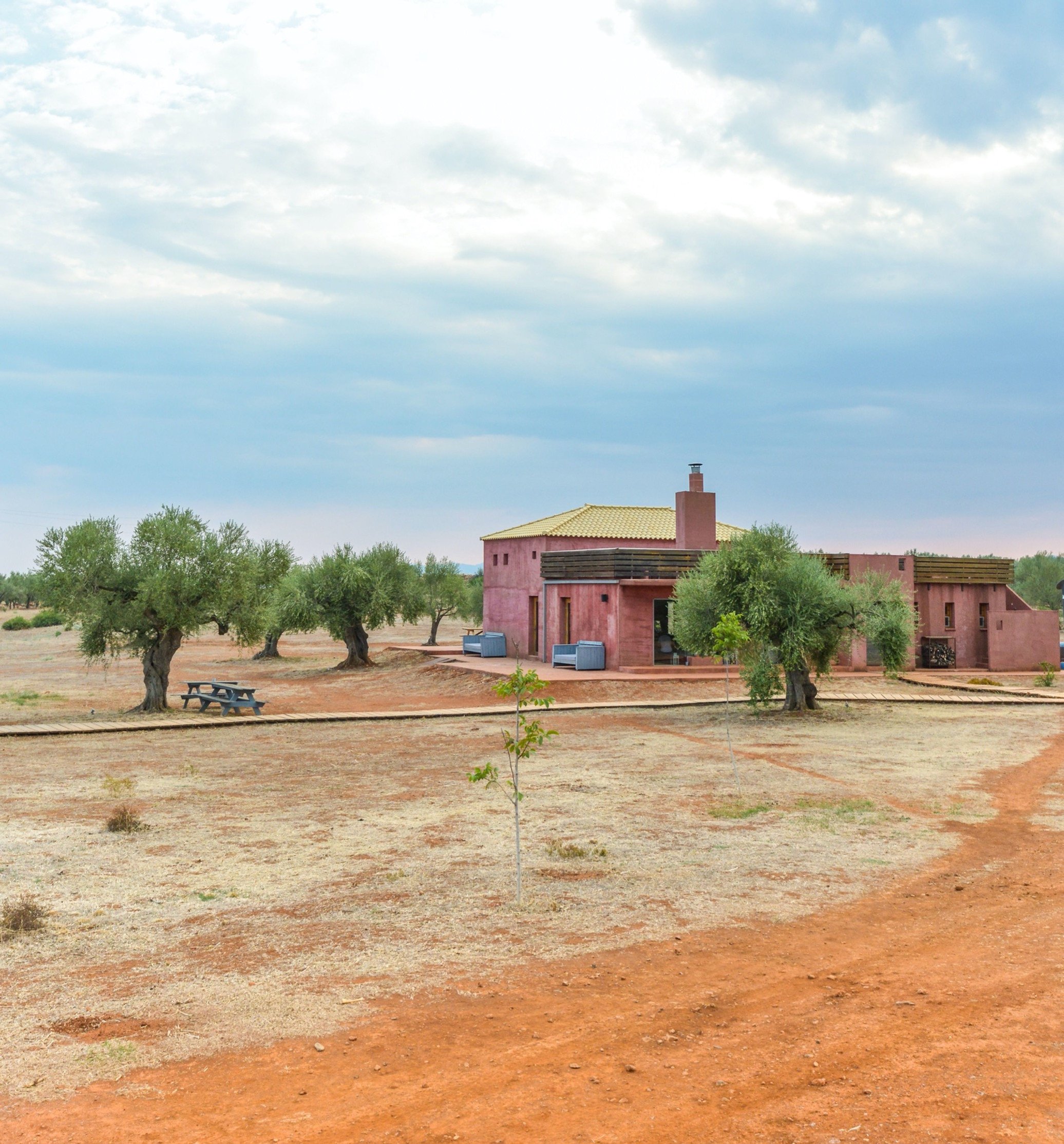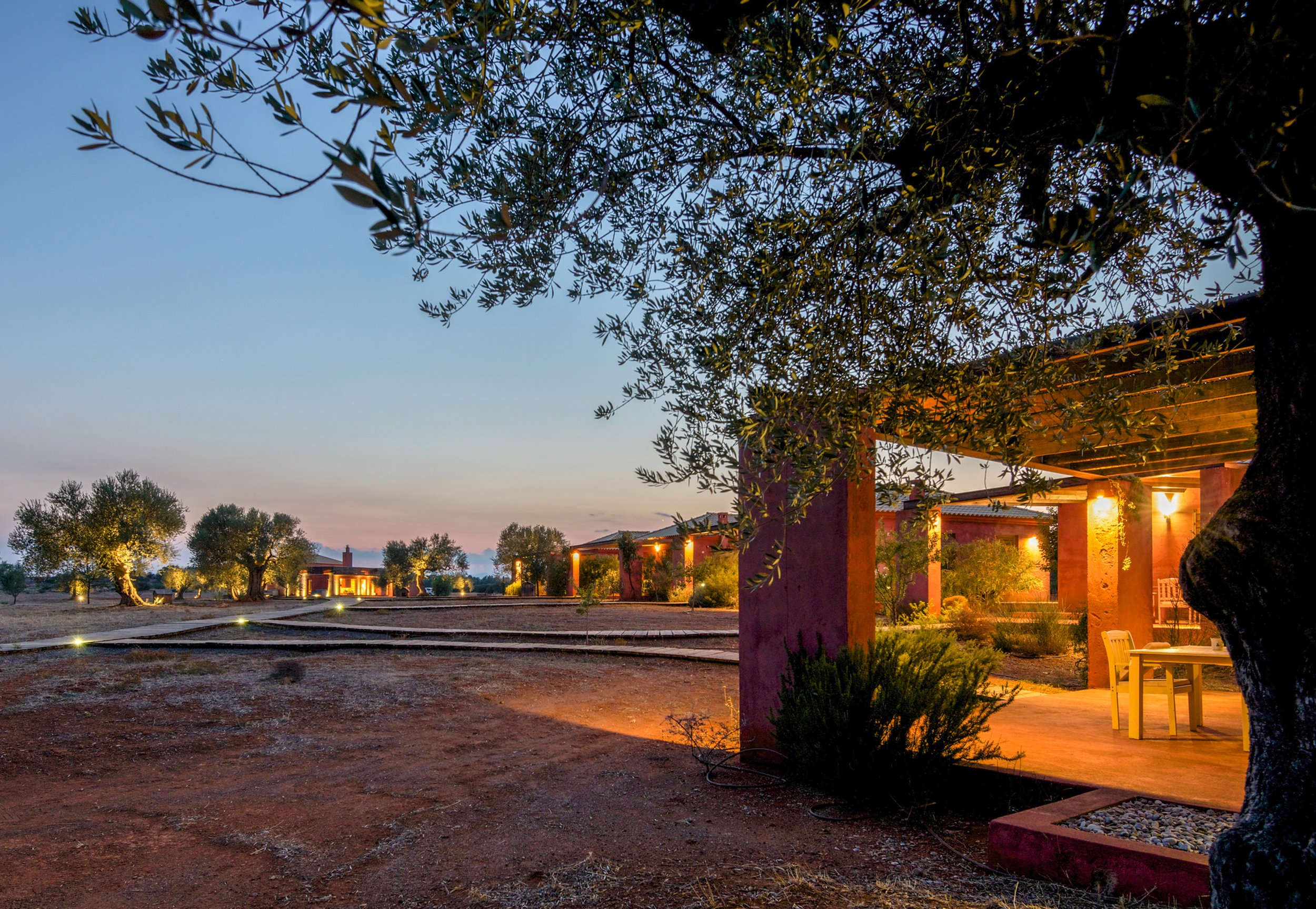An Inside Look Into Greek Olive Oil: Part I
How three entrepreneurs found their way into Greek olive oil
By Sean Mathews
LIÁ Olive Grove in Messinia, southwestern Peloponnese. Photo courtesy of LIÁ
Greece produces on average around 300,000 metric tons of olive oil per year. It is the world’s third largest producer of olive oil, behind only Spain and Italy. Not only is the product the country’s fourth largest export by value, but it is integrally linked to Greece’s heritage, culture, and cuisine.
Yet, think of the last time you went to a grocery store or specialty food shop and saw a large section of the olive oils stocked with Greek brands. Greece’s largest market for olive oil is by far Italy, where the oil is sold in bulk, mixed with other product from Tunisia to Turkey, then branded and bottled under Italian names. It has been the default mode of business amongst Greek producers for decades.
In a series of in-depth interviews we spoke with Greek producers throughout the Peloponnese, Greece’s largest olive oil producing region, to find out why this is the case.
The story is not only one of the challenges of branding, industry fragmentation, and lack of investment, but tradition and culture. While the producers we spoke with varied in their methods and business models, each one offered hope that a new generation in Greece is learning from the past and the models of other countries, trying to carve out a niche for themselves and Greek olive oil in the process.
From Art History to Extra Virgin Olive Oil
Cristina Stribacu, Co-founder of LIÁ Olive Oil. Photo courtesy of LIÁ
It was the height of Greece’s economic crisis and Cristina Stribacu found herself bicycling through the countryside of Messinia, Greece with a family friend from Holland.
“I was complaining about my future and the economic conditions,” Cristina said to Levendeia. Like so many who had grown up in the pre-crisis years when Greece had easy access to credit and luxury cars were found across Greece’s rural highways, Cristina was worried about how her life would change.
“I was shocked and depressed. I couldn't imagine myself living in Athens and working in a gallery for only 400 euros per month,” the former art history major said.
Her family friend gave her a message, “At a certain point he said to me, ‘stop complaining and look around you. You have this magic olive garden and you cannot see the opportunity.’ This is the point when I told my brother that we should do something together.”
Cristina’s brother studied agriculture and after school he pursued his passion by going into the fields to work the family’s olive grove with their father. “My brother is always in the garden,” she said.
For Cristina, the idea to move back to her family farm from Athens and work in olive oil was not a complete venture into the unknown. She grew up at the farm her parents began in 1976 when they were first married.
It was her love for the family’s olive oil that led her to take classes on the subject while she was studying in Italy. “I wanted to prove to my Italian friends that my family’s olive oil was the best olive oil,” she said smiling.
Cristina and her brother at harvest time. Photo courtesy of LIÁ
The financial crisis was the spark that let her channel her passion for arts and design along with her love for her family’s traditional craft to create LIÁ Olive Oil.
Before deciding to brand the olive oil themselves, her brother was selling the product in bulk to Italy. Since she comes from a small olive oil producing family I asked her why so many growers follow this same model.
She thinks it has to do with two kinds of producers common in Greece, those who need the money badly and those to whom their olive grove is a hobby passed down through the generations.
“For small producers, selling all their product immediately to Italian producers was and still is a solution in a country where the economy has always been a challenge. They need cash money to pay bills,” Cristina said.
On the opposite side, she says, “Olive gardens are also a second job in Greece. Maybe people have two-thousand trees from their pappou in the village but they live in Athens and have another life. So they come to harvest in December, sell everything in bulk and get a little cash money before they take home their family oil back to the city.”
Olive Oil Fit For a Dog
Harvest time at Alexandros Spiliadis' estate. Photo courtesy of Eléia
Alexandros Spiliadis, CEO and Founder of Eléia Olive Oil, is one of those who may not have envisioned himself as an olive oil entrepreneur.
Furthering Cristina’s point, he explained to Levendeia the gap between city and village that was brought on by a period of short, rapid urbanization in Greece and what he believes led to village producers falling behind the times.
“Half of our population lives in Athens but the artisanal producers live in the village and country. Maybe only 20 percent of the population lives where production takes place,” he explains.
He adds, “My parents’ generation didn't see a value in the land and thought they had to move to the big city and become doctors. My grandfather stayed in the Peloponnese and was never exposed to modern marketing and branding.”
Alexandros Spiliadis' Grandfather. Photo courtesy of Eléia
By the time the crisis hit, 30 to 40 years of urbanization left the rural eras depleted. Traditional businesses had become a lifestyle supported by urban income, not real businesses that could prosper.
Alexandros speaks from experience as a civil engineer who studied business administration at Imperial College London far from his family estate in the West Peloponnese.
He was home visiting family with a friend from Germany when he decided to make a snack with some olive oil from the family estate. The nearest olive oil by him was the one his sister would usually apply to the ears of their family dog to smooth the hair.
“I took the dog’s olive oil,” he tells Levendeia grinning, “and my German friend was amazed by the quality. I told him ‘we use this for the dog.’ That was when he gave serious thought to branding and selling the family’s product.
Today Eléia Olive Oil is the largest privately owned olive oil estate in Greece with roughly 45,000 olive trees.
“I began Eléia so that I could not only sell my own oil, but provide a Greek brand for other producers in our village to sell to,” Spiliadis recounts. His brand is now carried in more than 13 countries around the world and on the shelves of stores such as Whole Foods, Harrods, Dean and DeLuca in New York, and Marriott hotel locations.
International Relations helps inform olive grower and hotelier
Eumelia Farm in Laconia, Greece. Photo courtesy of Eumelia
The austere vista that Frangiskos looks out at, dotted with olive and cypress trees casting shadows on the red Laconian soil of the Southern Peloponnese, is a world away from the halls of the European parliament where he once worked.
The land that he turned into Eumelia, an agrotourism farm, is from his great-grandfather. For years it lay deserted, cared for by shepherds and an uncle who tried to manage the olive groves some of which date back thousands of years.
Like Cristina and Alexandros, Frangiskos tells me about the moment he decided to come back to his family land, “In 2003 I visited and I had this intense feeling that I needed to start here.”
With money he saved up from his past career he bought out some family members’ shares of the land, then went to work clearing the fields and laying the foundation for his hotel. “2004 to 2005 we drilled for water and brought in electricity, by fall of 2009 we opened the hotel,” he recounts.
Frangiskos was raised in Greece until the age of 12 when he moved to the U.S. with his family. He grew up in Westchester, NY and went on to study International Relations and obtained a masters degree from Johns Hopkins.
He says his first career traveling and working in IR had a deep influence on his idea to combine an agrotourism hotel with a functional olive grove and grape vineyard.
Frangiskos told Levendeia, “I saw the tech bubble burst, the Asian financial crisis of the 90’s, and now the food crisis. I was driven from the beginning to create a place that could sustain itself as much as possible by not putting our eggs all in one basket. We have guests and services.” He makes the logic sound simple, “You might have a bad year with the olive grove or grape vines, but the hotel will be there.”
Into our conversation I ask him about the distinctive red exterior of his hotel and outbuildings. He describes an old abandoned house he would pass in Laconia that had been built by red clay. “The soil around us is red, and I felt the need to connect the buildings with the earth. The architecture is beautiful, but I didn't want to steal away from the landscape.”
Eumelia Farm Houses at night. Photo courtesy of Eumelia
The care for the land and environment in his construction extends to much more than the color. He utilized bioclimatic architecture in building the hotel, stucco from natural materials, and wood from sustainable forests treated with natural oils.
Summing up the essence of his farm he says, “People always tell me to grow grass, and I say, ‘why waste all that water when you have this beautiful soil.’ He is clearly content with the unspoiled earth around him.
Read Part II here.






